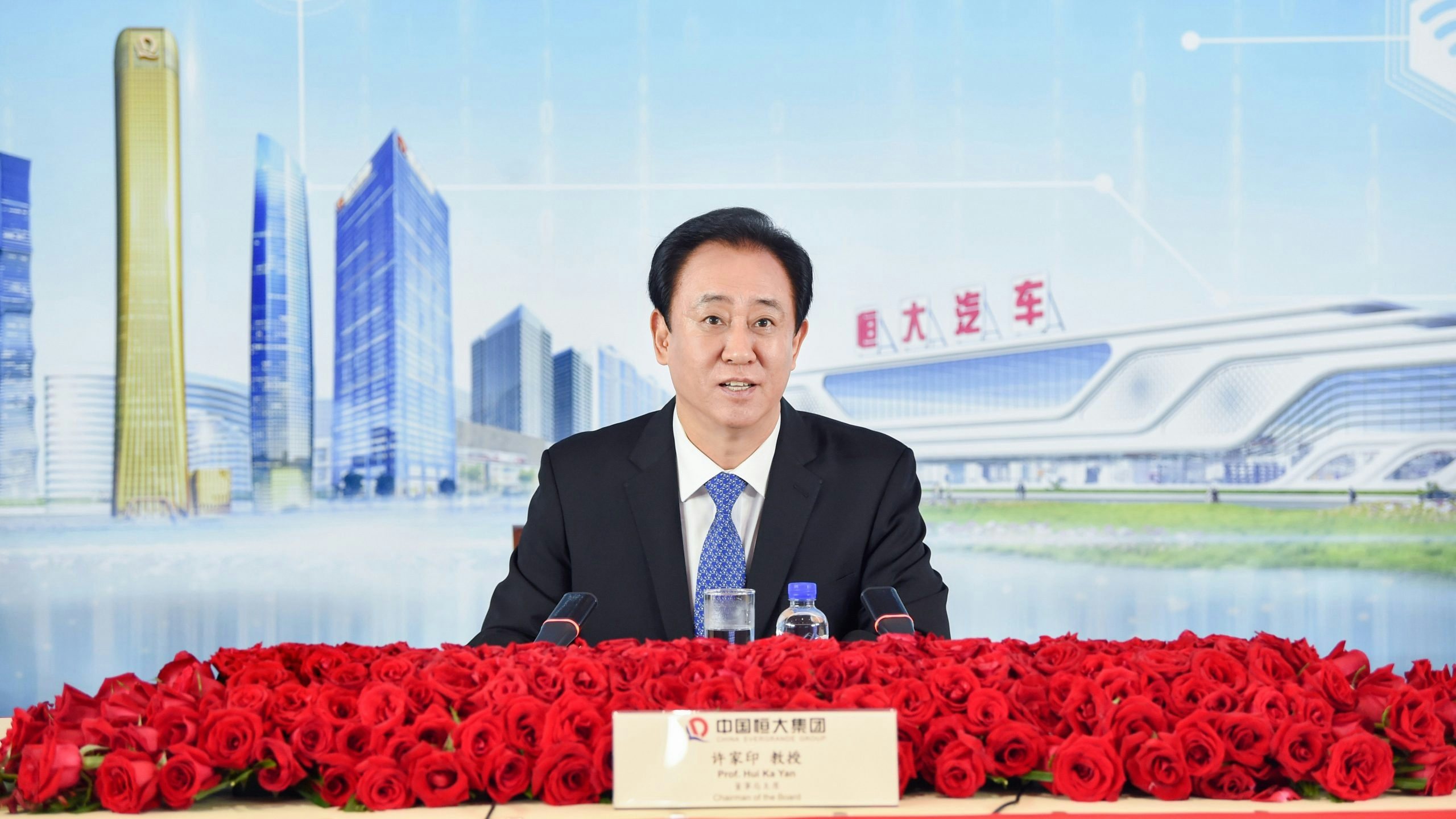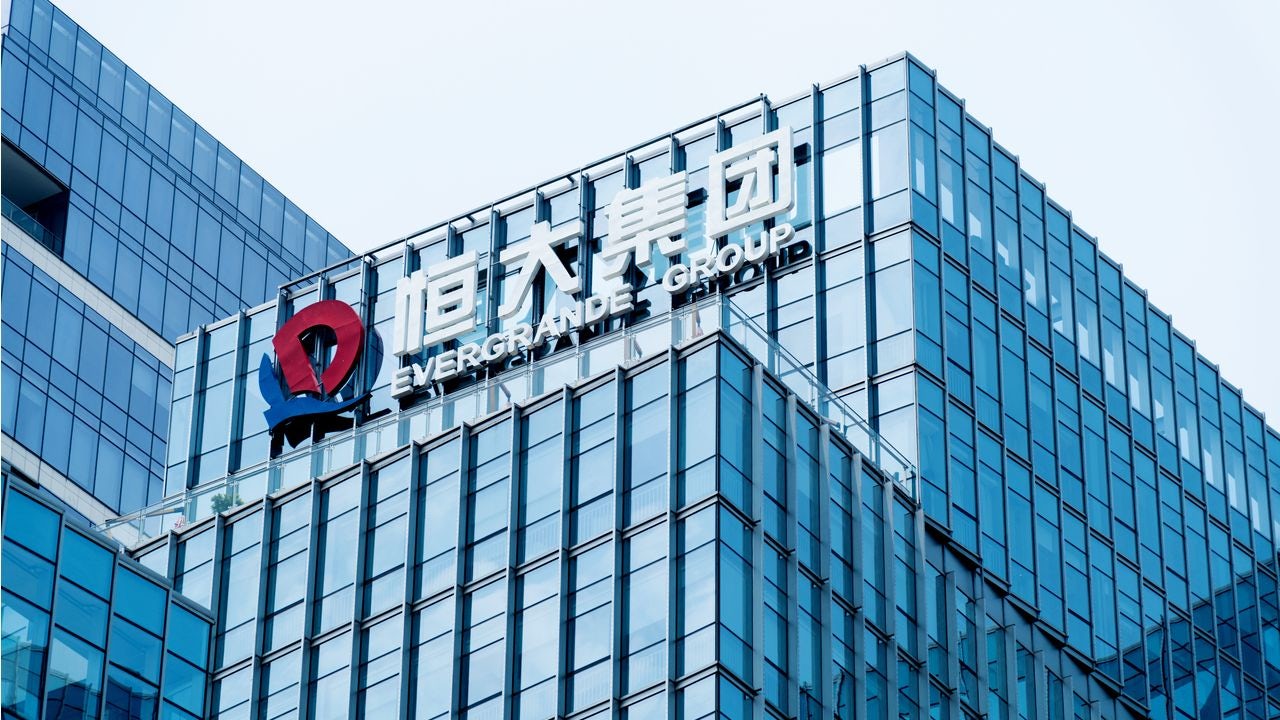Update published on November 22, 2021#
There’s a fire sale going on in China. Evergrande, the world’s most indebted developer, is unloading what it can to improve its liquidity and sustain its day-to-day operations — but how long can this last?
Embattled Chinese billionaire Hui Ka Yan, founder & chairman of the struggling China Evergrande Group, has reportedly been unloading shares and dumping personal assets since July, raising more than 1.1 billion (7 billion yuan) thus far.
Hui Ka Yan’s two private jets (totaling some 50 million) are gone, and the massive Airbus ACJ330 wide-body jet he purchased for 220 million is on the chopping block. He’s also sold off his company’s interest in the streaming service provider HengTen Networks Group for another 274 million. Then there is the 1 billion worth of China Evergrande Group shares in Hong Kong’s Central Clearing and Settlement System. But how does this add up to cover Evergrande’s looming 300 billion in liabilities due in March or April 2022? It doesn’t.
Given that China’s second-largest property developer by sales last year has now lost the capacity to sell new homes (its main business model) and with a government bailout looking unlikely, what’s left to stop Evergrande from defaulting? Even though Evergrande’s financial problems are different from the Lehman Brother’s bankruptcy in 2008 — which sparked a global financial crisis — it could still trigger a potential domestic economic downturn in China. And it would leave a long list of Western brands that bet the farm on the never-ending, always spending, prosperous Chinese consumer in its wake.
Original article published on November 4, 2021#
Hui Ka Yan was born poor in a rural village in China’s Henan province in 1958. He was raised mainly by his grandmother in a simple house with a thatched roof that failed to keep out the wind and rain. He left when he could, which was in 1978, to study at the Wuhan Institute of Iron and Steel, and from there, he went on to start his own business — Evergrande — in 1996. By March 2021, at 62, Hui Ka Yan was the 53rd richest man in the world, worth 27.7 billion dollars.
A classic rags to riches story, to be sure, though one with a questionable future. Evergrande, which drove much of China’s seemingly endless property boom, now finds itself saddled with a staggering 300 billion of debt from decades of unrestrained expansion. It also faces suppliers and creditors seeking hundreds of billions of dollars of unpaid bills, as well as more than 70,000 investors and stalled construction on apartments for more than one million home buyers who invested their life savings on the promise of a more prosperous future, which has turned sour.
The crisis stems from the Chinese government’s demand to reduce the amount of debt companies could take on, which causing a serious capital crunch for Evergrande, and has unleashed a cascading set of problems for every bank, company, and person that is connected with it.

Evergrande is running out of options — and cash — to stave off creditors. It narrowly avoided default on a 83.5 million bond coupon, as well as another interest payment due of 47.5 million a week later, though it’s not clear where Evergrande is getting the money to pay these debts. But it’s the 3.5 billion it owes in offshore bonds that are expected to mature in March 2022 that’s causing global concerns.
And the hope of the calvary (Beijing) saving the day by bailing them out is looking more and more unlikely, as a government bailout would send the wrong message to a host of other Chinese companies that have grown rich via speculative ventures like Evergrande. Moreover, if common prosperity is at all to be achieved, like President Xi Jinping has declared, the Communist Party will need to hold true to its socialist roots, echoing that it’s possible for everyone to take part in the wealth of a country — and companies that are “too big to fail” are in fact not. At least in China.
The hope would be for Evergrande to somehow repay its debts by restructuring and, in the process, minimize the impact of its collapse on the financial sector and, even worse, China’s overall economy. But what if this isn’t possible? What if an Evergrande bankruptcy unleashes a domino effect across other sectors in the economy, including China’s luxury market, which so many of the world’s global luxury brands have leveraged so much on? What then? A financial panic is difficult to slow down once it starts rolling, and it’s not too crazy to suggest that it could lead to a much larger economic collapse, like 2008, where one industry almost ruined the entire US economy.
Moreover, given ongoing waves of COVID-19, it’s possible that China could remain closed for much of 2022, keeping Chinese luxury consumers stuck on the mainland. To date, however, this hasn’t been a problem for most global luxury brands. In fact, for many it has been a boom. Not only have the reported 90,000 to 110,000 Chinese UHNWI’s been spending more than 100,000 each per year (roughly 25 percent of all luxury sales in China), but the remaining 75 percent have been lavishly spending as well. A true financial crisis might not slow down the 25 percent ultra-rich, but it will drastically slow down — if not stop — much of the remaining 75 percent from buying It bags and the latest trends and trinkets from global luxury brands betting on a prosperous and growing Chinese luxury market.
Given this, if the Chinese economy suffered some sort of collapse, what would the cost be for global luxury brands — or the world at large? What negative trickle-down effects would this unleash? And how would luxury brands have to pivot to remain profitable or, worst case, simply stay in business with China on tilt? The property market has been a key driver of economic growth in China since the mid-1990s and accounts for around a quarter of the Chinese economy by some metrics. If this goes south, China, and the wider world with it, will suddenly find itself not on shaky ground — but in quicksand. If that time comes, will China have enough buckets to bail out anything?
Today, Hui Ka Yan finds himself some 15.8 billion poorer, as Evergrande’s stock has plunged 80 percent. And things only look like they will get worse—for everybody.
Stay tuned.

